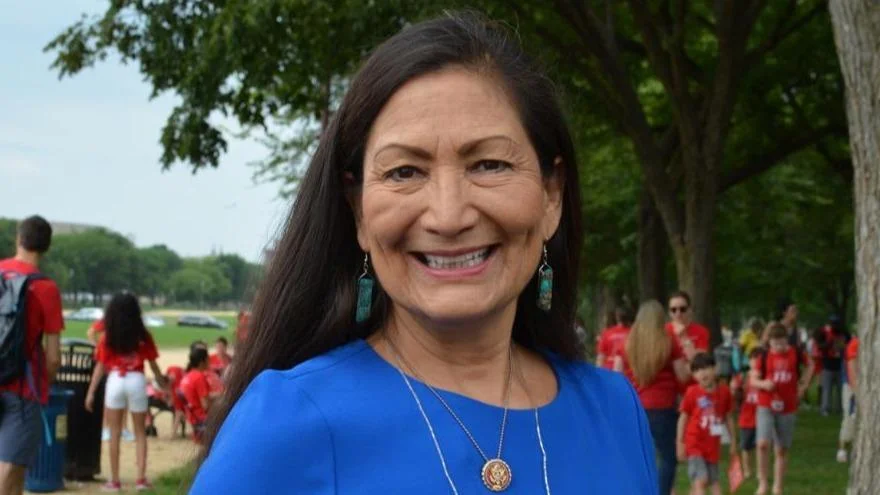Deb Haaland, U.S. Secretary of the Interior and former congresswoman representing New Mexico, has recently used her social media platform to comment on issues impacting families and communities in New Mexico.
On October 7, 2025, Haaland reflected on her personal experience with federal nutrition assistance, stating, "Like many New Mexico families, I depended on WIC to raise my child. Some weeks, the milk, cereal, eggs, and oatmeal from those paper checks were the only groceries we had. WIC makes sure kids get the nutrition they need. Families deserve that security, yet Trump is more focused". The Special Supplemental Nutrition Program for Women, Infants, and Children (WIC) is a federal program that provides nutritious foods to low-income pregnant women, new mothers, infants, and young children.
The following day, October 8, 2025, Haaland addressed the significance of traditional community resource management in New Mexico: "Acequias and land grants are living history—neighbors caring for land and water together. Permanent, stable funding will protect our communities, strengthen local governance, and preserve New Mexico’s heritage. It’s not just good policy—it’s essential infrastructure for a". Acequias are centuries-old communal irrigation systems managed by local residents in New Mexico. Land grants refer to historic communal lands granted during Spanish and Mexican rule.
Later on October 8th, Haaland criticized former President Donald Trump regarding the status of federal employees in New Mexico during potential government shutdowns: "Donald Trump is turning his back on nearly 22,000 New Mexicans who work as federal employees and on their families. Let’s be clear: people deserve to be paid for their work. Period. They should not be penalized by a government shutdown that is fueled by Trump’s irresponsible and". According to recent reports from the Office of Personnel Management and local news sources, approximately 22,000 federal employees live in New Mexico.
Haaland's statements reflect ongoing concerns about food security programs such as WIC—originally established in 1974—as well as efforts to sustain traditional land management practices unique to New Mexico. Federal government shutdowns have historically affected thousands of workers in the state who rely on uninterrupted paychecks.








